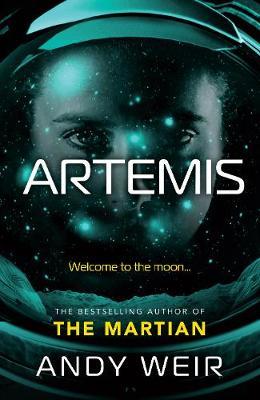**** Very well structured and enjoyable, but
not extraordinary
“Artemis”
is a techno-thriller with a well-developed scientific component, as I expected
from Weir. If I wanted to make a comparison with the books of other authors,
the first name that comes to mind is Crichton (sorry, Master!), for the fact
that the whole story is enslaved to the intention to talk to the reader about
science. However, any resemblances end here.
Crichton’s
books, in fact, tended to revolve around a great scientific theme, often with
moral implications, without necessarily bothering to use real or plausible
technologies (it was enough that they seemed so), but above all they had a
dramatic tone. Weir’s books, on the other hand, make people laugh. Its
protagonists don’t take themselves too seriously and are always kidding,
sometimes with the reader, even in life-threatening situations. It is clear
that the author likes to get them into trouble and then find a nerd way to get
them out. By combining these two aspects, we are dealing with new MacGyvers who
use their knowledge and the few resources available to them to solve desperate
situations. In this sense, “Artemis” looks a lot like “The Martian”.
There are,
however, big differences. “Artemis” is somehow better written, in the sense
that it has a structure that is better studied and characterised by a
well-timed narration. Everything works perfectly. “The Martian”, instead,
coming from episodes published on the author’s blog, presents the effects of an
undisciplined seriality that sometimes bewilders the reader. But it is
precisely its not being structured in the “right” way that makes it
unpredictable and therefore more enjoyable.
In “Artemis”,
on the contrary, even when we are faced with unpredictable twists, these are
only so in substance (i.e. we don’t know what will happen), but not in timing,
because they are so well inserted in the right point of the story that somehow
we see them coming (that is, we know that something is going to happen).
In addition
to this are a few clichés and an anti-heroine that eventually turns into a
heroine, overwhelming the reader with a predictable wave of goodness, the
consequence of which is a certain amount of disappointment.
Beyond all
this what makes “Artemis” substantially weaker than “The Martian” is the significance
of the plot. In the comparison between the story of a young criminal who ends
up threatened by other criminals (who are much worse than her) in the first
city on the Moon and that of an astronaut left by mistake on Mars (a desert and
lethal planet), the first comes out with broken bones.
Despite
this, “Artemis” is a pleasant and enjoyable reading, with a funny protagonist
and with many stimulating scientific topics. It is made in such a way as to
please as many people as possible, but as a result it cannot be completely
loved.
Artemis on Amazon.


No comments:
Post a Comment